September '25 Monthly Review
This post is a continuation of my series of monthly review posts - what I've been doing and all that kind of good stuff. Other entries in the 2025 series:
September has come and gone. It's been a busy one at work, basically what happens is everyone comes back from their holidays, realises that it's not that long until the end of the year and everything kicks into gear. The kids are back at school and some sense of routine is starting to kick back in.
Halloween decoration building is in full swing now, with the garage full of cardboard and odds and sods. There's paint all over the place, wires, off-cuts of wood. It's great. Nice to have sometime to tinker with that isn't in front of a screen. Although that said, a few days back I did write up a piece on Arduino electronics that my son and I built for this year's trick-or-treaters. 🎥 Take a look at the finished build!
Back on the Speaking Circuit
A big part of my time in the role as Principal Engineer has been building out a FinOps function, which was in its nascent stage when I took the role. It's involved wearing many hats: a stakeholder, a data analyst, moral and political support, a bug fixer, amongst others. Mike, our old FinOps lead, did a fantastic job in driving through organisational inertia and faced head on into a significant cost challenge.
To bolster expertise, I gained a FinOps Certified Practitioner certificate, and next month I'll be speaking at the FinOps Weekly Summit 2025 - a virtual FinOps conference. This is the first public speaking talk I've done in a while, it's exciting to get back out there on the circuit, with some cost-saving lessons learned the hard way.
North Tyneside 10k
I've been meaning to do this event for years. One year I had to drop out due to the lingering injury, another time it was cancelled due to the Pandemic. This year, the event was moved from its typical Easter-time slots to the end of September, so that the cycleway on the sea front could be finished. Fortuitious, as it turns out, because it was back around that time of the year I re-flared the foot injury getting rid of the artificial turf in the back garden. However, over the summer I've diligently trained (not that it's moved my waistline one jot) and then, yay, my first proper run in 11 years!

Usually, I consider the Great North Run the "end of Summer". A fortnight afterwards though, and the weather was fantastic. Nice and sunny but not too hot. The old bald patch (aka 'the gap' by my 4yo) still needed a good coat of suncream. Starting from the North Shields leisure centre, you run down to the Fish Quay, along the bank of the River Tyne and then up the geet big steep hill to Tynemouth Priory. At this point, in the far distance you can see St. Mary's Lighthouse and the expansive 4 miles of coastline separating you and that finish line. So you plough on, past King Edward's Bay and the Longsands, through Cullercoats, past Spanish City in Whitley Bay, and along the Links to finish at the lighthouse.
The reason I've wanted to do this run for so long is it's my home turf. This coastline is where I call home, and it's where I train. To run a proper race on my patch, it's just so appealing. And it's a great run too. The most difficult part is the rise to the Priory, so you need to diligently pace yourself. My target was to beat 1hr, and I did it in 55:50. It ended up being quite a serene and focused run, with a strong, consistent pace. Initially I was worried that I'd set out too fast and would struggle at the top of the hill. Thankfully that did not happen. Here's my splits:
| Mile | Pace | Elevation (ft) |
|---|---|---|
| 1 | 8:50 | -52 |
| 2 | 9:09 | 35 |
| 3 | 9:11 | 15 |
| 4 | 8:48 | -18 |
| 5 | 8:48 | -6 |
| 6 | 8:51 | 7 |
| 0.28 | 7:45 | -12 |
The event should be back in its normal slot next year, which means that I can spend the oncoming cold, dark nights keeping battle ready for the next big run along the coast. Incidentally, have you seen how much the Great North Run costs to enter now?!
Media
The Frugal Wizard's Handbook for Surviving Medieval England by Brandon Sanderson
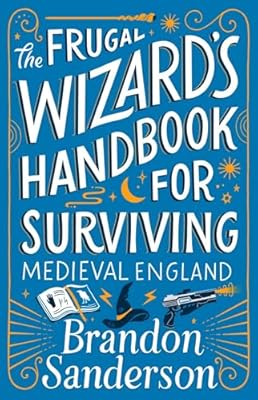
You may think this is off-kilter for Sanderson and tolerate a bit of eccentricity from one of his 'secret projects' written during the Pandemic. However, there's a solid science-fiction story in here, albeit not as well executed as the author is capable of. Essentially, the main character spends a large portion of the book in a state of confusion, trying to work out their location in a Medieval England settingm and how come they have so much biotech.
The 'medieval England' is in fact a downstream alternative universe, available for sale by the Frugal Wizard company. And some of these universes are more interesting than others, such as the one in which the story takes place. Interspersed with excerpts from the eponymous Handbook, the story is enjoyable enough, but only really gets going close to the end.
Walking Practice by Dolki Min (Translated by Victoria Caudle)
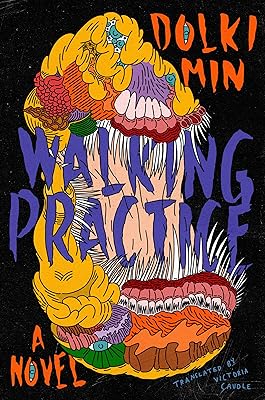
Walking Practice is a fascinating story. It's about an alien that's crash-landed on Earth, and survives by using its shapeshifting powers and general horniness to find food: on dating apps. Told from the first-alien(?) perspective, with a satirical take on dating apps being a literal meat market, this is an enjoyable extended rant about climbing stairs when you're an amorphous blob masquerading as its prey.
The Attention Fix: How to Focus in a World That Wants to Distract You by Dr. Anders Hansen
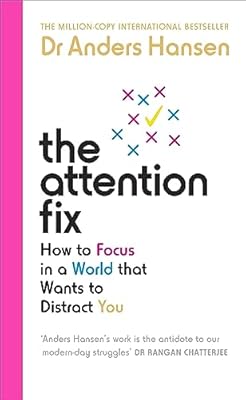
Evolutionary, Dr. Hansen argues that we haven't changed much and we aren't well adapted to the constant attention-demanding environment of today's modern society. Screens, apps, notifications. Is it leading to increased anxiety and depression? Is it harming our ability to sleep? Probably. But what about our ability to think? "Think in ink" is a classic phrase - writing is thinking:
With a pen, most people can’t write as fast as they can with a keyboard, so we are forced to choose what to write down. This means that when we write by hand, we have to process the information and thus we absorb it better.
And why is sleep so important?
Consolidation – when information is transferred from our short-term to our long-term memory – isn’t simply moving ‘raw data’ from the brain’s RAM to its hard drive. It also involves integrating the information into our personal memories to build what we call ‘knowledge’.
Although Dr. Hansen argues "we should be careful about giving airtight evolutionary explanations for our feelings and behaviours", the book largely does that. Perhaps this is because it's a distillation of a lot of concepts and aimed at the popular audience, from knowledge management to the "gamification" and attention focus of our social platforms. Especially as now there are one-armed-bandit social media apps like TikTok, Instagram Reels, Youtube Shorts, distilled and refined to the purest form of content injection. As our workloads and demands for performance increase in the 'do more with less' culture, and our ability to focus is directly threatened by the very tools we're instructed to use to work, this is a necessary topic for us all to address head-on.
British Ice by Owen D. Pomery

British Ice is a self-proclaimed "Arctic Noir", utilising the graphic novel format perfectly to capture that sparse, minimalist feel of isolation. A British diplomat takes residence on an Arctic island, uncovering a secret which faces into the British Empire's history of colonialism and its treatment of native communities. I got the point it was making, I mean, it thrusts it in your face. But the indigenous characters were under-developed and the idea of the white British man 'discovering' the atrocities of his countrymen was a bit on the nose.
The Creeper by A.M. Shine
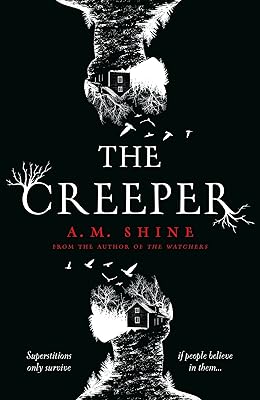
I thoroughly enjoyed this short folk horror from Irish author A.M. Shine. Ben, the main character is recruited by a wealthy, eccentric Doctor to investigate an off-the-grid community. While at the village, a child mentions 'The Creeper' - a boogeyman the villagers live in fear of. At night, Ben and his accomplice Chloe sight The Creeper, thus starting the countdown to their demise, unless they unpick the mystery behind the entity. A slow-burner that maintains an unnerving and creepy tone throughout.
The Price of Time: The Real Story of Intrest by Edward Chancellor
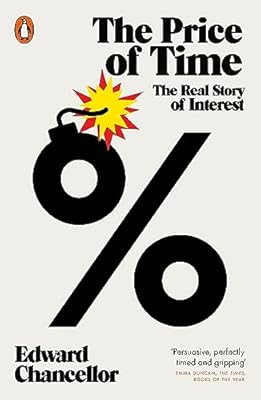
In the UK the interest rate rapidly plunged from 5% to 0.5% in response to the 2008 Financial Crisis. It held there for almost the entire length of the Conservative's era in Government, getting as low as 0.1% in the Pandemic and only beginning to reliably climb once the lockdowns ended. Interest returned to that 5% mark around the time of the 2024 General Election, although it's been stepwise falling ever since.
Why is Interest so important? This book explores the origins of the concept and the different perspectives.
At times, the history is drier than it ought to be. Moving forward to the later and more contemporary latter sections, rather Hayek-ian. There's an interesting analysis of the economic effects of sustained near-zero rates of interest - us in tech sector are well-versed in the venture capital-driven startup 'ZIRP' culture - although the focus is too much on the pessimistic and neoliberal perspective, and less so on the optimistic. The more considered historic becomes a disjointed and disappointing polemic.
Also, the author considers Netscape a FAANG company, instead of Netflix. So make of that what you will.